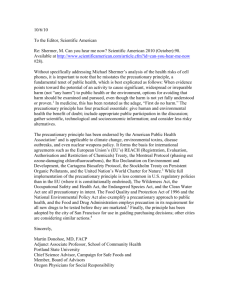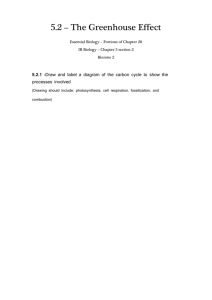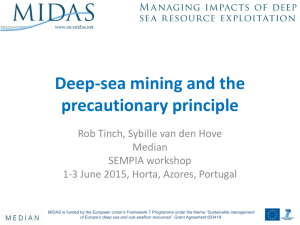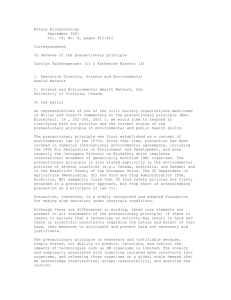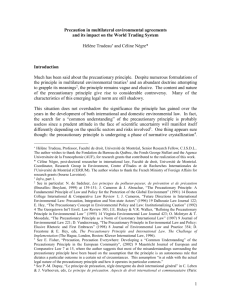Precautionary principle
advertisement
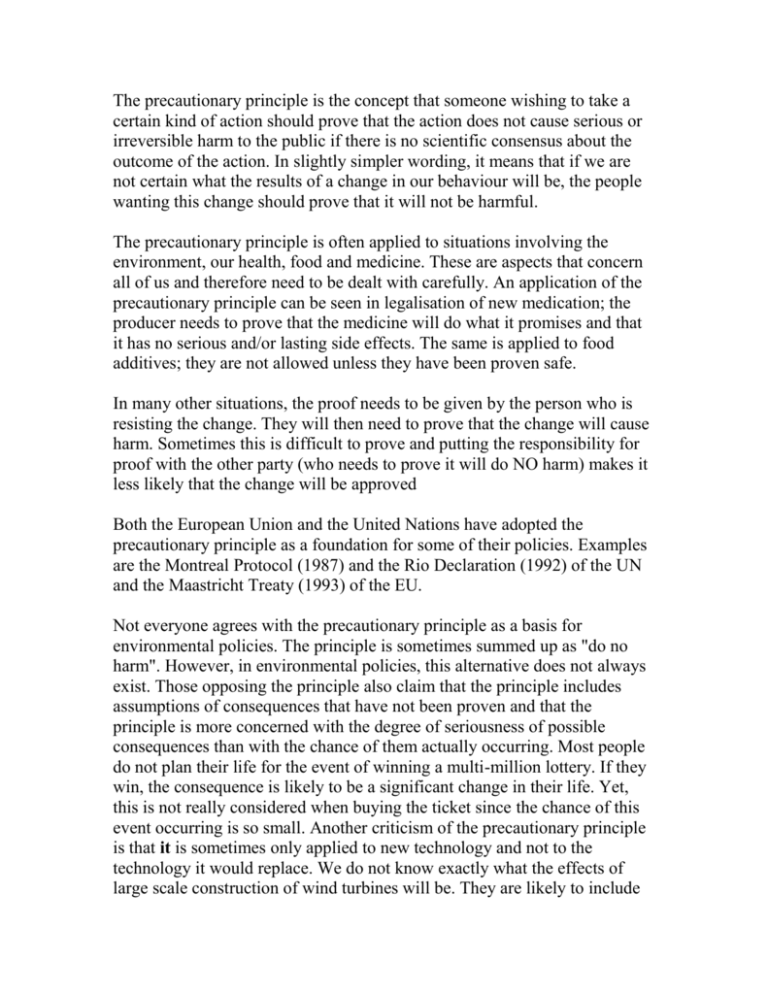
The precautionary principle is the concept that someone wishing to take a certain kind of action should prove that the action does not cause serious or irreversible harm to the public if there is no scientific consensus about the outcome of the action. In slightly simpler wording, it means that if we are not certain what the results of a change in our behaviour will be, the people wanting this change should prove that it will not be harmful. The precautionary principle is often applied to situations involving the environment, our health, food and medicine. These are aspects that concern all of us and therefore need to be dealt with carefully. An application of the precautionary principle can be seen in legalisation of new medication; the producer needs to prove that the medicine will do what it promises and that it has no serious and/or lasting side effects. The same is applied to food additives; they are not allowed unless they have been proven safe. In many other situations, the proof needs to be given by the person who is resisting the change. They will then need to prove that the change will cause harm. Sometimes this is difficult to prove and putting the responsibility for proof with the other party (who needs to prove it will do NO harm) makes it less likely that the change will be approved Both the European Union and the United Nations have adopted the precautionary principle as a foundation for some of their policies. Examples are the Montreal Protocol (1987) and the Rio Declaration (1992) of the UN and the Maastricht Treaty (1993) of the EU. Not everyone agrees with the precautionary principle as a basis for environmental policies. The principle is sometimes summed up as "do no harm". However, in environmental policies, this alternative does not always exist. Those opposing the principle also claim that the principle includes assumptions of consequences that have not been proven and that the principle is more concerned with the degree of seriousness of possible consequences than with the chance of them actually occurring. Most people do not plan their life for the event of winning a multi-million lottery. If they win, the consequence is likely to be a significant change in their life. Yet, this is not really considered when buying the ticket since the chance of this event occurring is so small. Another criticism of the precautionary principle is that it is sometimes only applied to new technology and not to the technology it would replace. We do not know exactly what the effects of large scale construction of wind turbines will be. They are likely to include noise pollution, visual pollution of the landscape and the death of birds who collide with the wings. The precautionary principle would suggest that we do not include wind energy in our plans for the future. However, if that means we will continue to generate electricity, using coal, oil or other fossil fuels, without applying the precautionary principle, we might not have taken the best decision. A third criticism of the precautionary principle is that it is often used to scare people with doomsday scenarios because "fear is funding". This would benefit those involved in the research but not necessarily the rest of the population. TOK The precautionary principle The legal presumption of innocence that is central to the operation of most societies has long been extended to natural science, that is, it is assumed that human actions are not detrimental to the environment unless proven otherwise. The precautionary principle is the reverse of this approach, i.e. that a proposal may proceed unless proven to be detrimental. It does not presume that all human impacts on the environment innocent. As humans, we often forget that we are unique in our far-reaching ability to change the natural world. The precautionary principle is now applied to many activities in developed countries where governments increasingly insist that development of natural resources is conditional upon assurances that the environment will not be harmed and that fragile habitats or species will not be threatened. The full impact of unchecked human activity upon the biosphere is now becoming obvious. Climate change and the degradation of fresh water supplies could be seen as a consequence of the precautionary principle not being applied as humans have developed the natural world over the last two decades. The application of the precautionary principle now is argued as essential by many in the scientific community in the areas of issues affecting climate change and fresh water. These are global issues that reach far beyond the borders of politics, culture and language. To take action in these areas requires a substantial economic cost. Should this cost be borne by developed countries that have had decades or centuries of economic benefit from their environmentally costly actions or should t be shared by all societies? Should economically developed countries assist the poor in developing countries who have been affected by the consequences of climate change? The solution to these issues lies in international coo operation founded on the desire to protect the biosphere for all of its inhabitants, current and future, regardless of their species. 0
